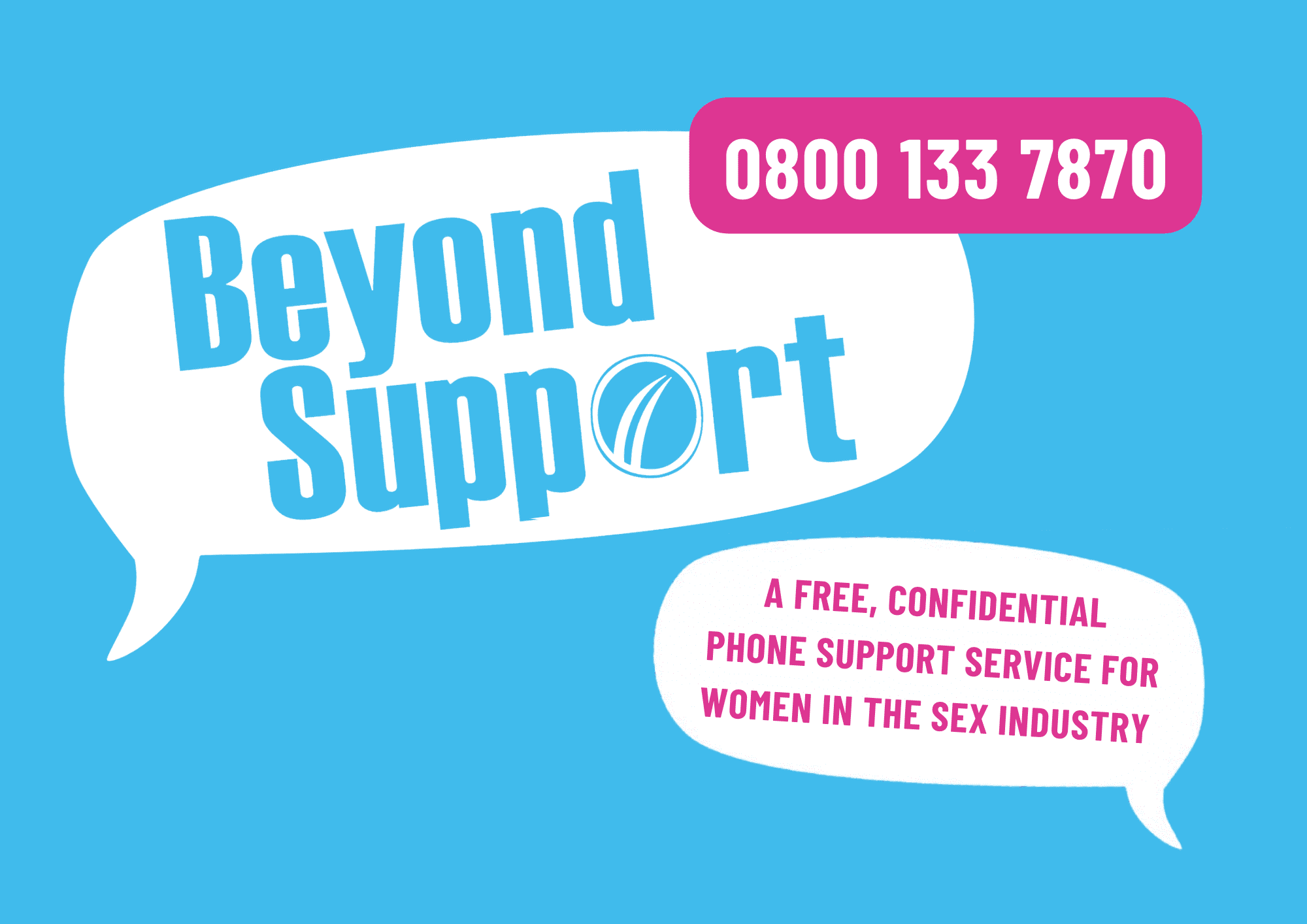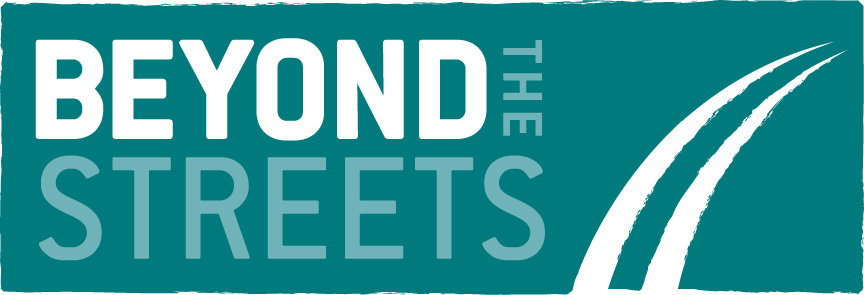
Mental health and selling sex, what is it like for women accessing services?
TW: Trauma, process of diagnosis.
Worrying about not being believed, about being judged, and about maintaining anonymity can affect a person’s mental health. We will explore these concerns in this blog and look at the experiences of the women who we support.
The context of the women we journey alongside at Beyond the Streets:
Many of the women we work with have suffered trauma, and many are battling a range of issues including a history of past physical, emotional, and/or sexual abuse, trauma (including childhood), poverty, and homelessness, and a significant number have experience of the care and criminal justice system. Many of the women we work with sell, or have sold, sex to afford essentials such as utilities, rent, food (survival sex). All this has an impact on their mental health.
It can be especially challenging for some women trying to access services, as they can find they’re met with judgement by people they are approaching for support.
Women’s behaviour may be stigmatised as being chaotic, abusive, or ‘difficult’; something they may have to cope with on top of struggling with vital mental and physical health support or gaining access to appropriate secure housing or benefits.
The pressures of being misunderstood can erode a woman’s wellbeing. To share more specifically about this, one of our Women Support Workers has written a blog on her advocacy work, explaining her role in aiding women to gain access to services to address their support needs. This blog will come out later in #MentalHealthWeek! When it does, you will be able to find a link here.
Mental health is such a vast topic, so for this blog we’re going to focus on experiences of trauma, and about the challenges that can arise around diagnoses. We will look at some potential arguments for and against ‘labelling’ and what it means to be trauma informed.
In 2022, we published research on initial assessments of the women who contacted us for support. This highlighted varying support needs that women may have. In the report, the most frequently occurring theme is mental health (out of 18 identified).
Mental health was mentioned as something that is an issue for women in 78% of our initial assessments that made up the report. This includes mental illnesses such as depression, anxiety, PTSD (post-traumatic stress disorder), OCD (obsessive compulsive disorder), BPD (borderline personality disorder), bipolar, anorexia, body dysmorphia, as well as mentions of being on anti-depressants, having suicidal thoughts, or feeling down, tearful, or struggling mentally or emotionally.
96% of those surveyed have mentioned concerns with support service access, suggesting that there is not enough support for the mental health needs of women selling or exchanging sexual services.
Some of our support workers have caseloads with over half of the women they support having been diagnosed with complex PTSD. They may have been diagnosed with PTSD but have never fully spoken to anyone about real routes of their trauma due to the stigma surrounding some of their life events. When support for PTSD is sought, sadly there are a lack of services available. Full report available here
Well, for some people a diagnosis of a mental health condition is validating. This is because it helps to explain why they have been feeling and reacting in certain ways, and it can help others to understand this too. It can be a weight off their shoulders to know that they are not alone, that it will help them get the right support and treatment. For others having a diagnosis can make them feel stigmatised and judged, or that it could adversely affect their future life.
What we do know is that getting the right help is tricky. Just getting a GP appointment can be challenging and even when referrals are made it can be difficult to access mental health services due to a shortage of staffing. Even though for some there are reservations about labelling, currently once a diagnosis is obtained, it can exponentially speed up and improve a woman’s access to services.
Mental health is evolving as with other forms of medicine, and this can lead to some professionals questioning some medically based diagnosis. Controversially, some practitioners question diagnosis of personality disorders such as BPD especially when a person has gone through trauma (see this article by Mind). They see symptoms such as low mood, difficulty making relationships and anxiety as natural trauma responses that should not be labelled as a disorder or psychosis.

Some have argued that symptoms like these should not be used to diagnose people at all, or that they are misleading altogether, while others argue for a reorientation of the way we diagnose by not immediately jumping to these labels, and first treating individual’s symptoms with appropriate care, but still holding the space for a potential diagnosis in future.
In addition to this, we know that if women and girls become subject to criminal harm in its various forms and go the police/criminal justice system as a victim, they are often encouraged to get a diagnosis as proof of psychological harm. There are concerns that this can have detrimental outcomes. Women diagnosed with BPD are sometimes thought to be unreliable or attention seeking, or unstable and therefore not to be believed; this is detrimental to their ability to access support. Also, if they have a history of mental illness this can be used later to dismiss their story.
These experiences have led some practitioners such as Dr. Jessica Taylor, author, psychologist, and campaigner, to advocate for complete de-labelling, and has even created a practitioner guide to use when supporting trauma survivors so that the symptoms can be at the fore, with no labelling of conditions at all.
Whether a diagnosis is obtained or not, what is key is that those who are struggling with difficulties with their mental health have access to appropriate support that will help them thrive.
Today, a diagnosis can certainly open up access to support services and, diagnosed or not, there is a growing movement towards trauma-informed practice in mental health, counselling, other support services, and beyond.

Trauma informed care is a practice where support workers consider all aspects of an individual’s life, from past adverse experiences to current and future stressors, and understand holistically what the individual is going through. This can inform the way in which a caseworker interacts with the person they’re supporting, being mindful of their triggers and of best ways to support their specific needs and difficulties.
At Beyond the Streets, our experienced Women’s Support Workers (WSW’s) work alongside women who seek support on a long-term basis and be flexible with women who may disconnect and re-engage with us for whatever reason.
Our WSWs can provide 1:1, in-depth, holistic, trauma-informed support, while our service also can link women with free professional counselling with. Sessions with Women’s Support Workers are a safe space for women to process feelings, learn grounding techniques, and safety plan.
We also advocate so women can access vital services including suitable housing, mental health support, and drug treatment and recovery. We attend meetings with them and work with multiple agencies to enable the best outcomes; journeying alongside women as they reach their self-determined goals.
Read more about #MentalHealthAwarenessWeek
Do you need support with your mental health?
Here are some useful links:
Mental health support
Also see Mind’s useful collection of helplines here: https://www.mind.org.uk/information-support/guides-to-support-and-services/crisis-services/helplines-listening-services/

Share this page